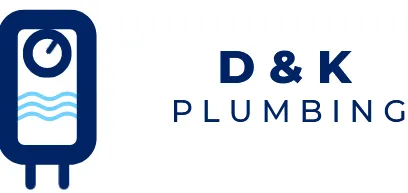Condensing vs Non Condensing Tankless Water Heaters: What are the Differences?
There are two types of tankless water heaters that homeowners can choose from: condensing and non-condensing models. It's important to know the differences between these two options before making a decision. This article will compare condensing and non-condensing tankless water heaters to help readers choose the one that is best for their home.

What is a tankless water heater and how does it work?
There are two main types of water heaters: traditional ones with storage tanks and tankless models. Traditional water heaters store a lot of water in a tank and keep it heated all the time. On the other hand, tankless water heaters heat water as it flows through a heat exchanger. This eliminates the need for a tank, saving space and energy.

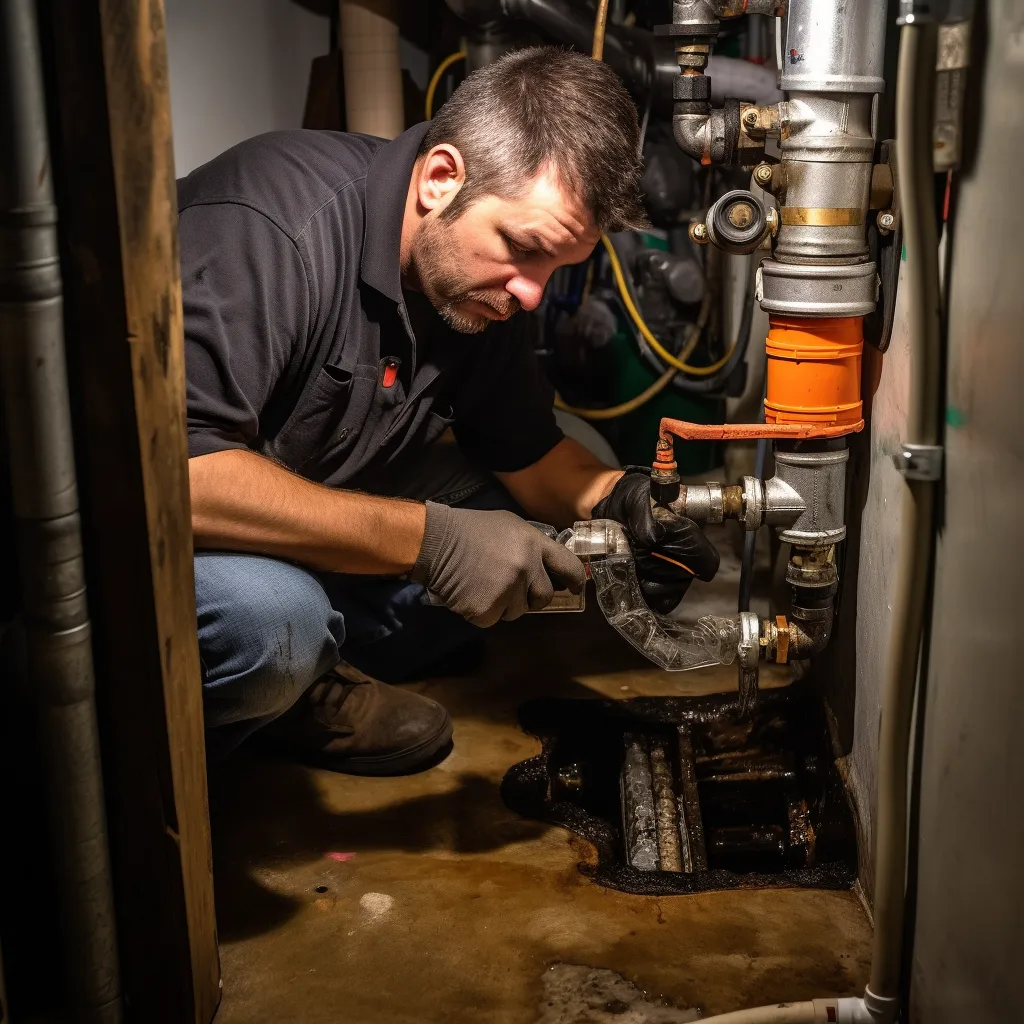
What is a condensing tankless water heater?
The condensing tankless water heater is an improved and more efficient type of tankless water heater. It uses a smart method to capture and reuse wasted heat, which effectively heats up the incoming water. This process boosts efficiency and cuts down on energy waste, leading to noticeable savings on your energy costs. Additionally, by using less energy, the condensing tankless water heater also helps lessen your impact on the environment, making it a greener option.
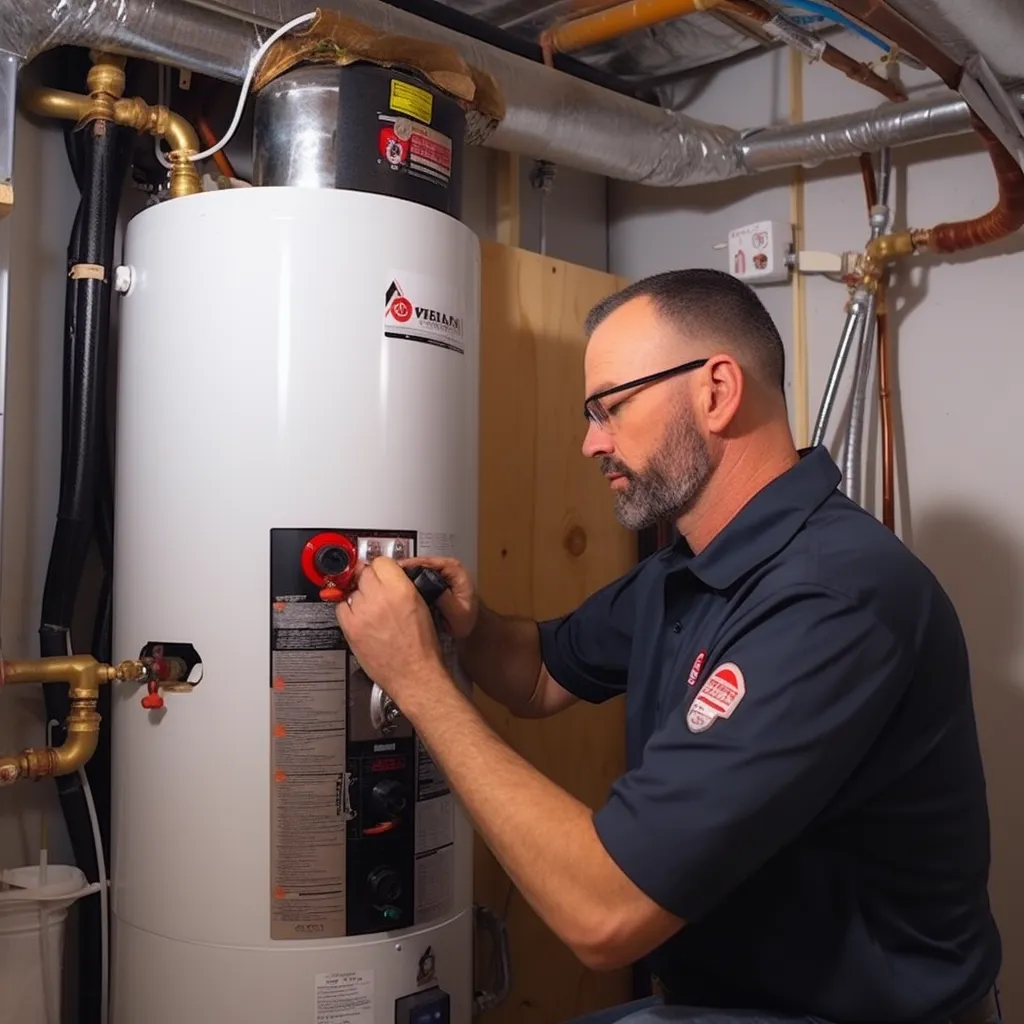
What are the differences: condensing vs non condensing tankless water heaters
When it comes to selecting a water heater that can save you money on energy, tankless options are a great choice. However, it's essential to know the difference between condensing and non-condensing models.
The main difference lies in how they handle exhaust gases. Non-condensing models release these gases into the air, while condensing models cool them until they become water vapor, which is then expelled.
Condensing water heater models are more energy-efficient and efficient overall than non-condensing models. Despite having higher initial costs, condensing models offer substantial long-term savings by lowering energy expenses.
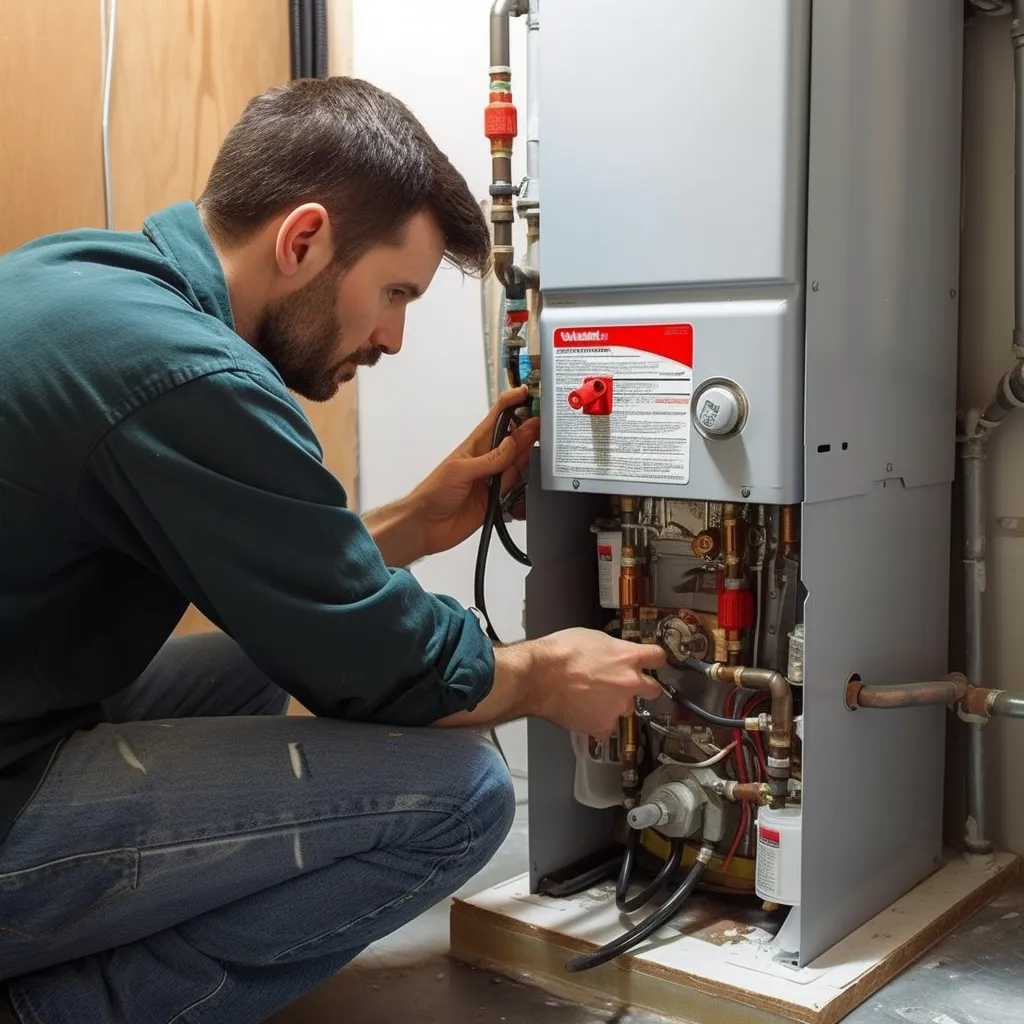
What are the benefits of a condensing tankless water heater?
Condensing tankless water heaters provide many benefits when compared to non-condensing water heaters.
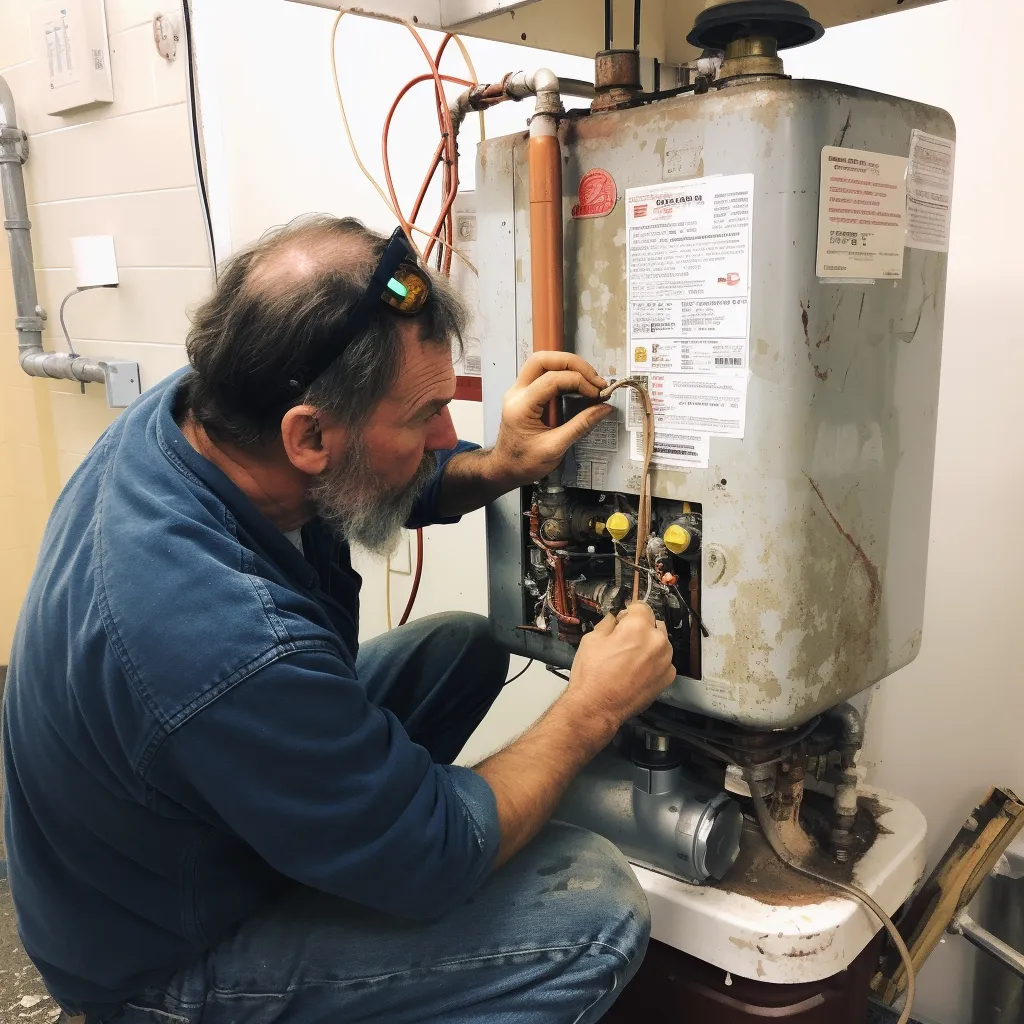
Condensing models are known for their higher efficiency, leading to cost savings on utility bills. By effectively utilizing waste heat from exhaust gases, they extract more energy from the fuel source, resulting in improved efficiency.
Condensing water heaters produce fewer greenhouse gas emissions, making them more eco-friendly. This reduction in emissions helps minimize the environmental impact and contributes to a greener home.
Condensing water heaters tend to have a longer lifespan than non-condensing models. Their simplified design with fewer components reduces the potential for mechanical failures and increases overall reliability, providing a consistent source of hot water for an extended period.
What are the disadvantages of a condensing tankless water heater?
There are a few disadvantages to using condensing tankless water heaters. Firstly, they tend to be more expensive than conventional tank water heaters. Additionally, these units may require more maintenance and servicing due to their complex nature. Another drawback is that condensing tankless water heaters typically have a lower flow rate compared to conventional tank water heaters, which means they may not be able to supply hot water to multiple outlets simultaneously. Lastly, these units may have higher installation costs as they may require additional venting and piping.

Condensing water heater models may be pricier than non-condensing options, but it's crucial to compare the upfront cost with the potential long-term savings on energy efficiency and utility bills.
It is important to mention that condensing models of water heaters may need more maintenance and installation can be more complex. This is because these models require additional venting and drainage systems.
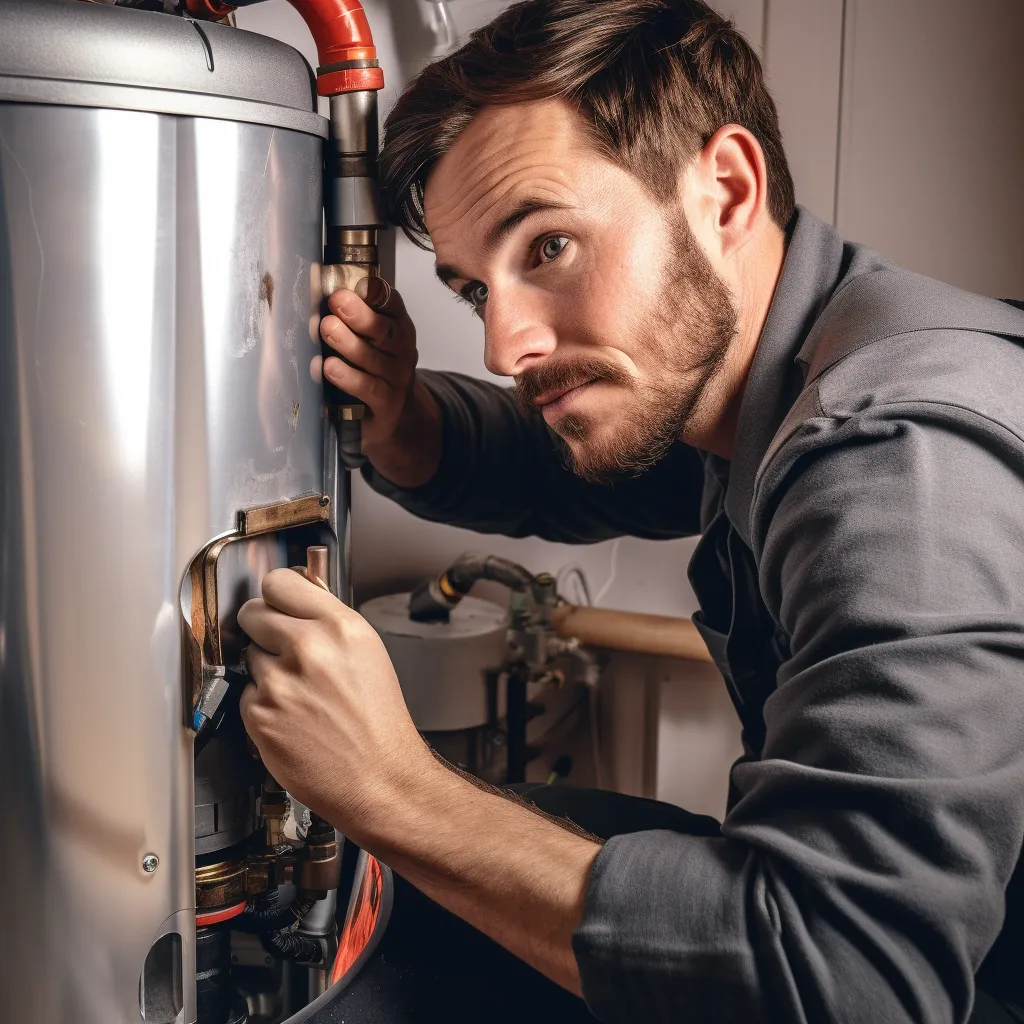

Are condensing tankless water heaters energy-efficient?
Condensing tankless water heaters provide a smart and environmentally-friendly option for warming water. They are highly efficient, with a remarkable efficiency rate of up to 96%. These water heaters are able to effectively capture and make use of heat that is normally lost during the combustion process. This results in energy conservation, leading to substantial long-term savings since there is no unnecessary heating of water.
Additionally, condensing tankless water heaters work on an as-needed basis, which means they only heat water when it is necessary. This not only helps to cut down on costs but also has a positive impact on the environment by avoiding unnecessary energy usage.
Homeowners who opt for a condensing tankless water heater can experience efficient water heating that not only saves them money but also helps create a more eco-friendly and sustainable environment.
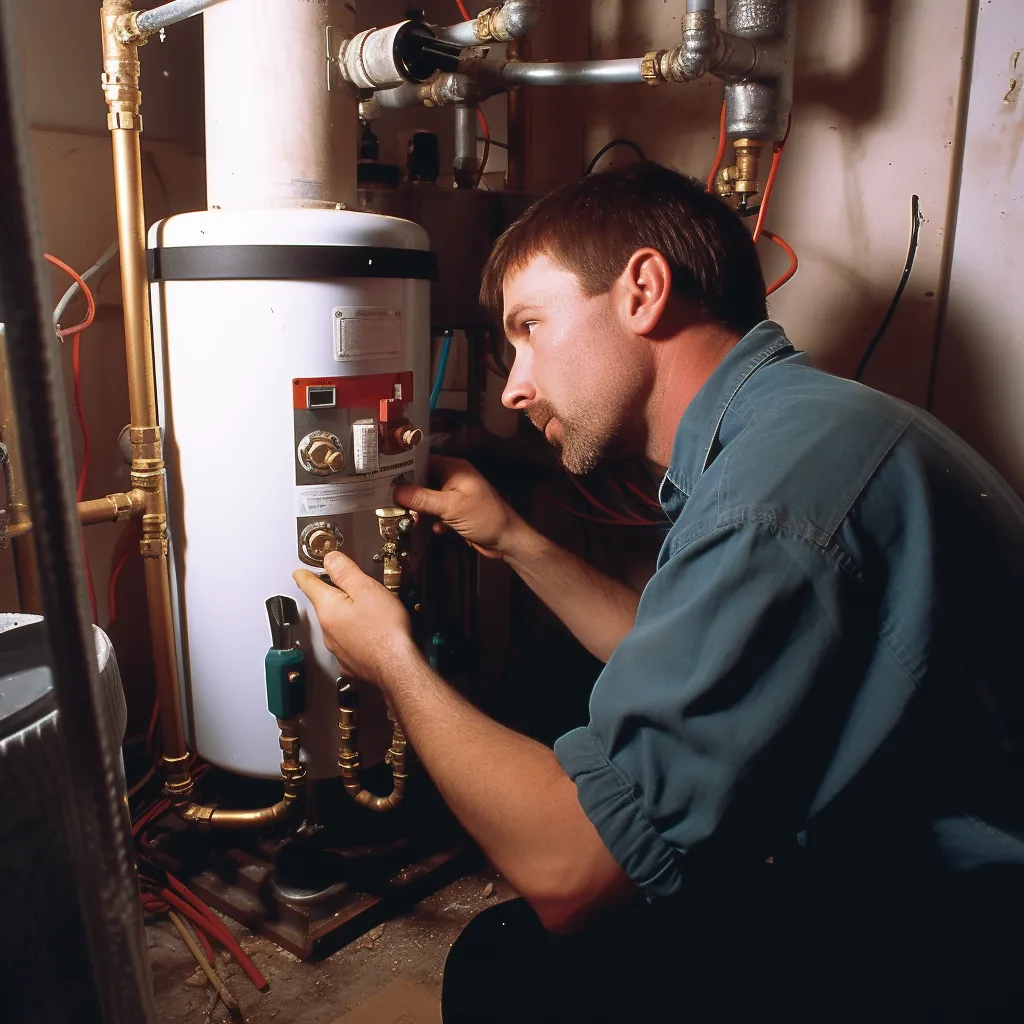
Are non condensing tankless water heaters energy-efficient?
Non-condensing tankless water heaters are a great choice for people who value sustainability and want to save money on their water heating. Although they are not as energy efficient as condensing models, they still use less energy and are more cost-effective compared to traditional tank water heaters.
Non-condensing tankless water heaters offer an efficient and eco-friendly option for those looking to upgrade from traditional water heaters. Although they do not capture and utilize waste heat like condensing models, they still provide improved energy efficiency and cost savings compared to tank-based systems. This makes them a popular choice among households seeking a more environmentally-friendly and efficient water heating solution.
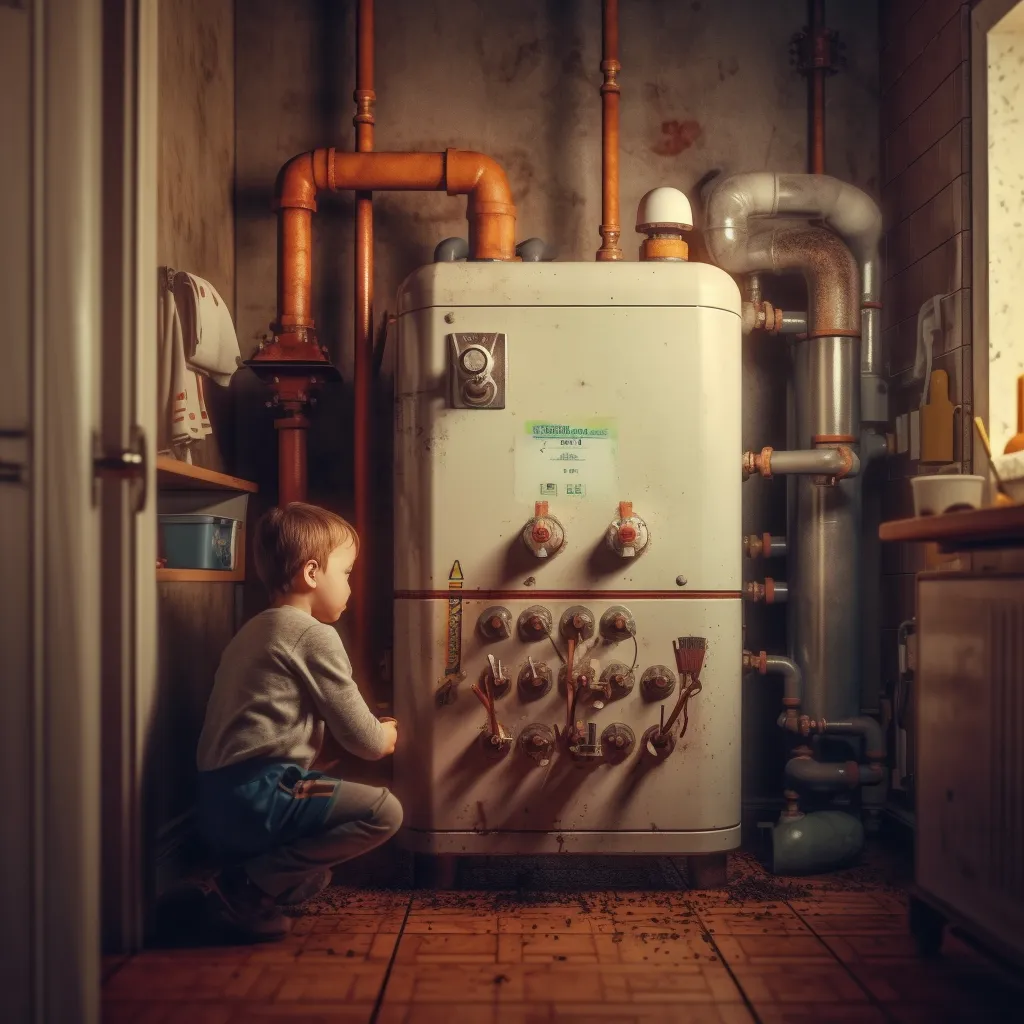
What is the cost to buy and install a condensing tankless water heater?
When it comes to condensing tankless water heaters, you can expect significant energy savings and improved efficiency. However, it's crucial to consider the total costs involved. Factors like the size and model of your home, as well as the brand of the water heater, can impact the price. It's also important to take into account the complexity of installation.
To make the right decision and find the perfect condensing tankless water heater for your home, it's a good idea to consult with a trusted professional. Their knowledge and insights can help you choose the best option that meets your specific needs.
Although the upfront price may be higher, condensing tankless water heaters offer lasting advantages for homeowners. The energy savings and enhanced efficiency can lead to substantial cost savings over time, making it a valuable option for those looking for an effective and environmentally friendly water heating solution.
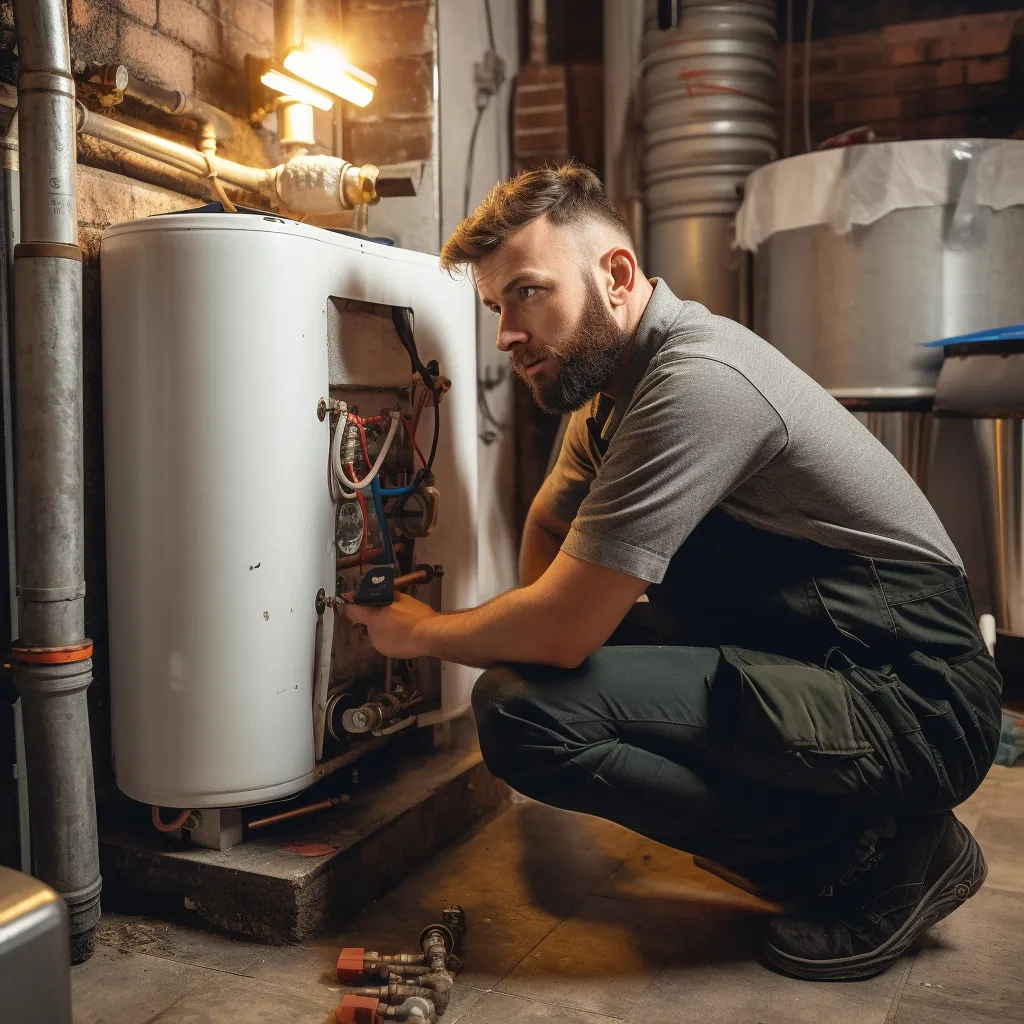
What is the cost to buy and install a non condensing tankless water heater?
Non-condensing tankless water heaters are a popular choice among homeowners. They come in different sizes and are offered by well-known brands. The price range for these water heaters usually falls between $1,000 and $3,000. While the initial cost may seem high, they are a durable option that can provide unlimited hot water for up to 20 years. In addition to their long lifespan, these water heaters also have a sleek and compact design, allowing you to save space and reduce clutter in your home.
What are the condensing tankless water heater maintenance requirements?
Here are some of the maintenance requirements for condensing tankless water heaters:

Check for leaks or other issues.
Clean the heat exchanger and burner.
Inspect the filters and replace frequently.
Test water temperature and pressure.
Unclog the ventilation system.
Flush the system regularly to keep it clean.
Check or clean the air filter often.
Maintaining your condensing tankless water heater is essential to avoid problems like increased energy costs, reduced efficiency, or potential harm. To keep your water heater in excellent condition, it's advisable to arrange regular professional maintenance checks. By being proactive with maintenance, you can save time and money in the future, while keeping your water heater running smoothly and efficiently.

What are the maintenance requirements for non condensing tankless water heaters?
Regular maintenance is important for both condensing and non-condensing tankless water heaters in order to ensure optimal performance and prevent any potential problems.
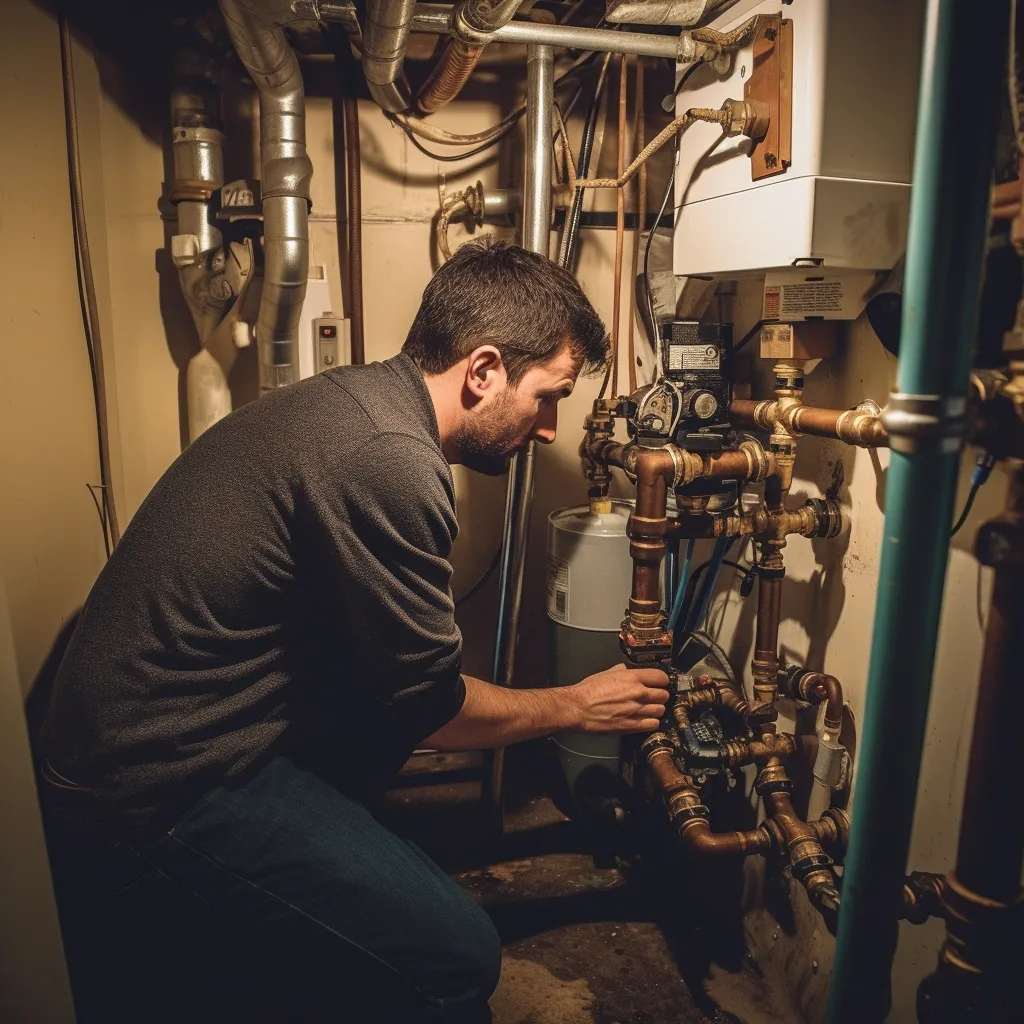
It is important to regularly flush your water heater system in order to remove any mineral buildup and debris that may impact its performance.
Regularly inspect the filters of your water heater unit and replace them when necessary to maintain optimal water flow and prevent any potential blockages.
Regular maintenance is essential to keep your water heater running at peak performance.
The water heater should be thoroughly checked for any issues like leaks or malfunctions.
It is important to check the water pressure and temperature in order to make sure they are at the suitable level for the water heater to function correctly.
To ensure proper airflow and prevent any ventilation problems, it is important to regularly remove any debris that may be blocking the vents.
What to consider when choosing between a non condensing vs condensing tankless water heater
When deciding between a non-condensing and a condensing tankless water heater, there are a few key factors to keep in mind:
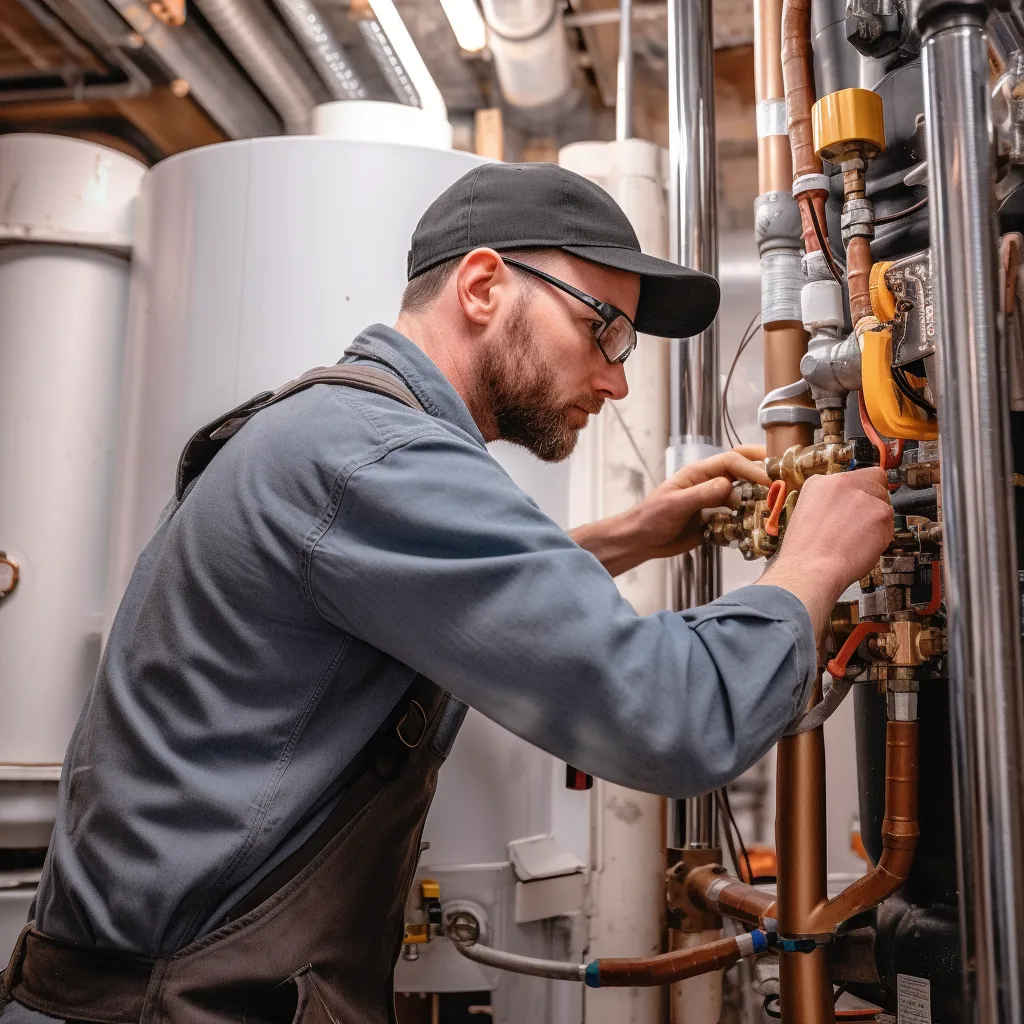
Condensing water heaters are a more suitable choice if you have limited space because they are smaller and take up less room compared to non-condensing water heaters.
Installing these units can be more challenging and costly due to their complex nature. On the other hand, non-condensing units offer a simpler and more affordable installation process.
When it comes to the upkeep of water heaters, it's essential to note that non-condensing tankless models may require more regular maintenance compared to condensing ones.
Condensing water heaters are a great choice if you value energy efficiency. These units use less energy, which can lead to significant long-term savings on your utility bills.
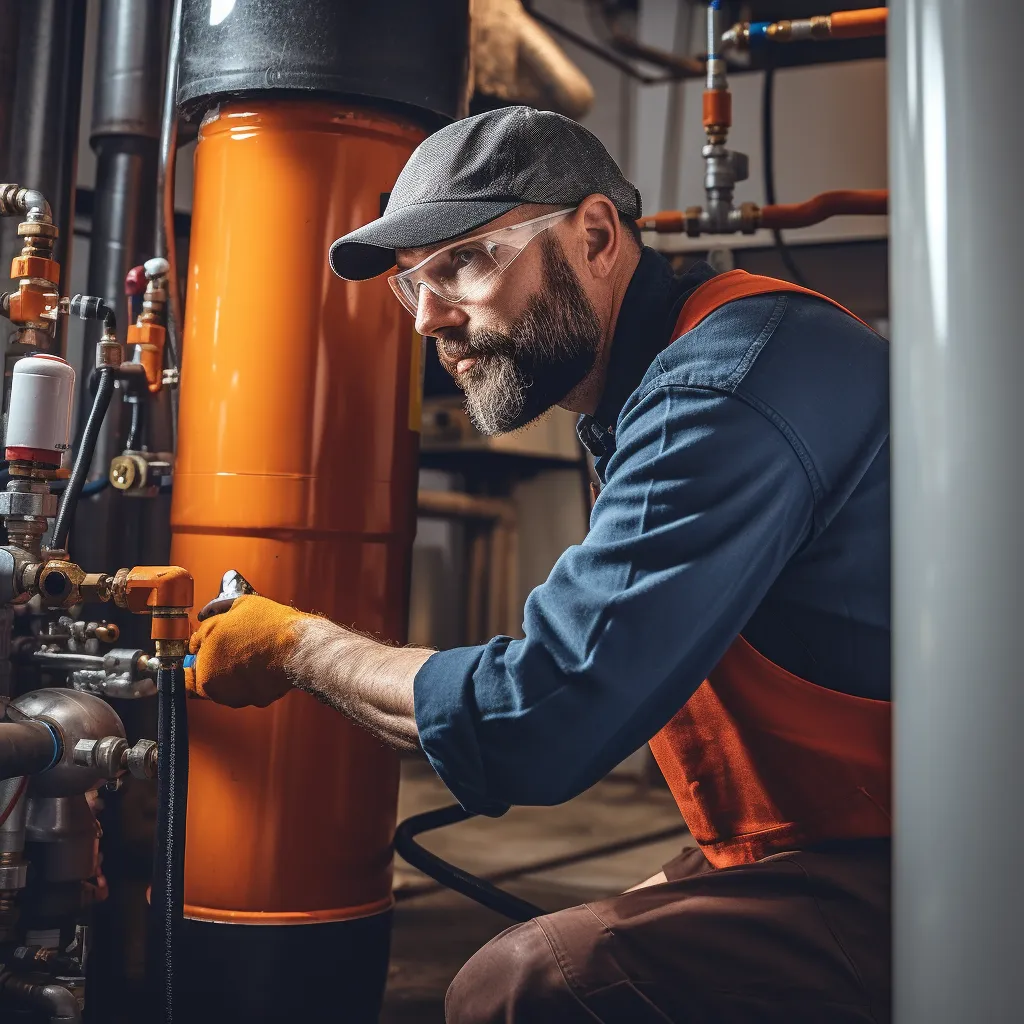
Researching condensing vs non condensing tankless water heaters

When looking for a tankless water heater, it's important to consider the pros and cons of different types. One decision to make is between a condensing or non-condensing unit.
While non-condensing units may seem cheaper at first, they can waste energy and require more maintenance. On the other hand, condensing tankless water heaters are more cost-effective and can help lower utility bills. By taking the time to compare options and choose the right water heater type, you can have hot water when you need it and save energy.
It is important to note that choosing the right type of tankless water heater is a personal decision. To make the best choice for your home, it is crucial to consult with a licensed professional who understands your home's specific needs. Their expertise can help you choose the right water heater that meets your home's requirements.
Contact Us
